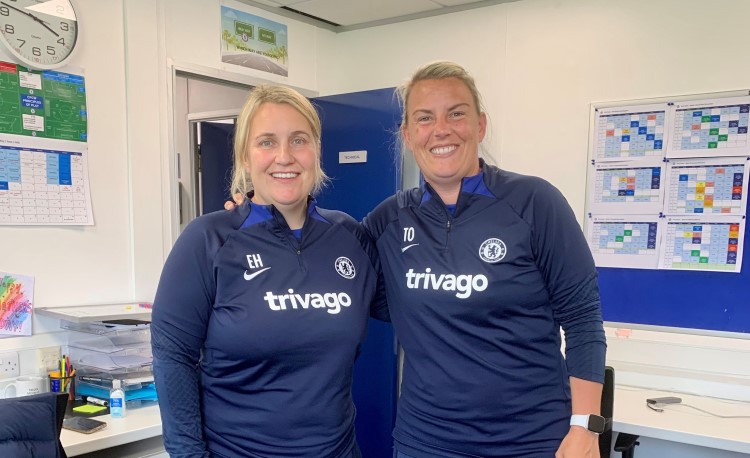NEXT ELITE SOCCER COACHING AWARD COHORT STARTS FEBRUARY 16 - ENROL NOW
You are viewing 1 of your 1 free articles
Taking your opportunities
For some managers, a business in trouble is a poisoned chalice; for others it represents an unmissable opportunity to shine. But leading a turnaround can be very tough. We speak to one of those who was up for the challenge – Wolverhampton Wanderers boss Kenny Jackett.
At some point in your career as a manager, you’ll find yourself working in tough conditions; often it’s a reason why the club changed its manager. But it can only ever be a great opportunity. You have to look at the potential of a club and try to reach or exceed that. With Wolves I could only see potential to improve.
“Walking into my interview, I thought I had a good idea of what the club needed and what I would do if given the job. You get better at dealing with tough situations with experience. However, if the opportunity comes I think you just have to take it, whether you’re experienced or a novice. If morale is at rock bottom you will probably have to change people. While there may be a lack of confidence or sense of direction, the enthusiasm has to be there and if it’s not then you may have to change your team. That’s how I felt coming into Wolves.
“When I joined, the team had been through two relegations in as many years. They needed some players without that baggage and the supporters needed new players to focus on. As a manager, you promise to be committed to the cause and to do everything in your power to succeed. But when it comes to setting goals and raising expectations, you have to be careful about being openly optimistic or having high hopes. You will have your own internal ambitions and expectations, so at Wolves we say we want to get into the Barclays Premier League and that is where the bar is set.
“But, given the high turnover rate of managers, it often doesn’t help to lay your head on the line by making bold predictions about your ambitions and expectations for the team. You have to concentrate on making a good start in the league and getting through a couple of rounds of the cup in order to gain momentum and confidence. Going into Sky Bet League One I felt that Wolves had fantastic potential. It was everybody’s cup final.
“There are certain challenges that big clubs with a long history face in that league, other recent examples being Leeds United, Sheffield United, Sheffield Wednesday and Nottingham Forest. So we faced our own set of problems compared with other clubs that had spent more time in the division. We had to recognise those challenges and make sure we could come up with the answers straight away. The pressure to succeed is no greater or lesser when the organisation is already at rock bottom; most pressure comes from inside. There is always going to be pressure on football managers to get results, because the turnover in this profession is so high. It is something managers have to accept. I don’t think you ever get the better of it, but you do come to terms with the fact.
“I also don’t think the pressure is any greater when you’re at the helm of a big club than a small one. If you are bottom of the league with a small club you may still get the sack. Motivating yourself when the wins are in short supply and you know it will be a long journey back to greatness can be tough. The motivation comes from the belief that you can win the next game and the need to figure out a way to do that. Whether that means changing the system or the players or simply putting your faith in the team and helping them believe that they can get through that bad period, it is looking forward that motivates you.
“When the methods you have implemented enable you to turn things around it is very satisfying professionally, but it is still important to keeping looking forward. Wolves, for example, had a good year last year, but we are focused on the future and are not looking back. What we achieved last year should give the players the confidence that they can be successful, but now that has all started over again. Once again we have to prove ourselves, and that includes me. That’s what makes looking forward so exciting.”
Editor's Picks
Attacking transitions
Deep runs in the final third
Using the goalkeeper in build-up play
Intensive boxes drill with goals
Penetrating the final third
Creating and finishing
My philosophy
Pressing initiation
Compact team movement
Coaches' Testimonials

Alan Pardew

Arsène Wenger

Brendan Rodgers

Carlos Carvalhal

José Mourinho

Jürgen Klopp

Pep Guardiola

Roy Hodgson

Sir Alex Ferguson

Steven Gerrard
Coaches' Testimonials

Gerald Kearney, Downtown Las Vegas Soccer Club

Paul Butler, Florida, USA

Rick Shields, Springboro, USA

Tony Green, Pierrefonds Titans, Quebec, Canada
Join the world's leading coaches and managers and discover for yourself one of the best kept secrets in coaching. No other training tool on the planet is written or read by the calibre of names you’ll find in Elite Soccer.
In a recent survey 92% of subscribers said Elite Soccer makes them more confident, 89% said it makes them a more effective coach and 91% said it makes them more inspired.
Get Monthly Inspiration
All the latest techniques and approaches
Since 2010 Elite Soccer has given subscribers exclusive insight into the training ground practices of the world’s best coaches. Published in partnership with the League Managers Association we have unparalleled access to the leading lights in the English leagues, as well as a host of international managers.
Elite Soccer exclusively features sessions written by the coaches themselves. There are no observed sessions and no sessions “in the style of”, just first-hand advice delivered direct to you from the coach.






